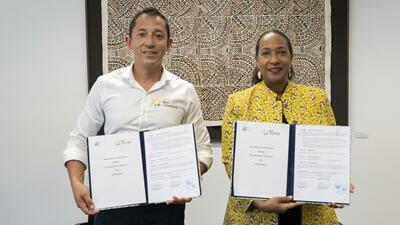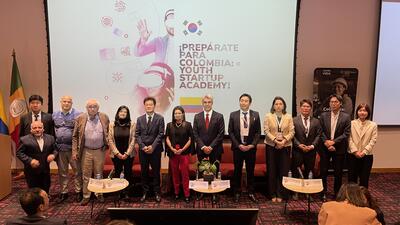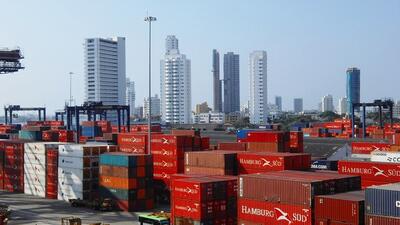Business owners in Colombia identify non-tariff obstacles to trade (en)
(Bogotá-Geneva) – A new study has revealed that nearly two-thirds of Colombian businesses find that procedures related to non-tariff measures are greater obstacles to trade than the regulations themselves.
Last week, ITC, together with its partners the Chamber of Commerce of Bogotá, the Colombian Ministry of Commerce, Industry and Tourism, the Andean Development Corporation (CAF), the University of Rosario and UK-Aid, presented the results of the study to exporters and importers in Bogotá. The forum, ‘Challenges posed by non-tariff measures (NTMs) and trade barriers in Colombia’, was organized with a view to promote joint action among the public and private sectors as well as academia to find solutions to the problems identified.
The results of the study, which was based on a survey of hundreds of importers and exporters, revealed that 65% of Colombian businessmen found that NTM-related procedures were greater obstacles than the regulations themselves. Among the main challenges highlighted by business owners were inadequate storage facilities for products during customs procedures, delays in testing, complications with certification and a lack of access to information regarding regulations.
‘This type of strategic analysis is of great importance to Colombian businessmen as it will contribute to the ongoing improvements in Colombia’s existing foreign trade policies and procedures, and promote regional integration processes in Latin America’, explained Mónica de Greiff, President of the Bogotá Chamber of Commerce.
‘We live in a world where the average tariff rate applied in world trade is approximately 5% and costs related to customs procedures are around 10%. The non-tariff measures are the real barriers that we don’t see but we feel since they account for roughly 20%-30% of international trade’, said ITC Executive Director Arancha González.
The research focused on two areas: identifying procedural obstacles arising from Colombia’s own regulations, which must be addressed directly by national institutions, and classifying the NTMs of potential export markets.
The report summarizing the survey results explains how the companies most affected (by NTMs) were identified; it also pointed to the different problems that confront importers as opposed to exporters.
For importers, the survey established three main NTMs– pre-shipment inspections, conformity assessments and technical requirements– that create procedural problems.
For seven out of ten exporters, however, customs inspection of exports was the greatest obstacle.
Seventy-nine percent of the problems reported by Colombian business owners involved procedures required by the Anti-Narcotics Police and the Colombian Tax and Customs Authority (DIAN). These included cases of arbitrary interference by officials, and instances where checks affected the quality of the goods and technological failures.
Faced with many non-tariff measures in strategic target markets, Colombian importers and exporters have to contend with the peculiarities of regulations, which vary from country to country. One common example was Ecuador’s complicated process for the certification of products and certificates of origin. Trade relations with Peru were also marred by obstacles originating in that country (in 93% of the cases).
As a target market, Mexico has three specific measures that affect Colombian entrepreneurs: certificates of origin, labelling requirements and the certification of products. The United States and the European Union, for their part, have more stringent requirements, which cause delays in compliance procedures.
The survey was conducted by contacting 731 persons via telephone, visiting 143 importers and exporters and documenting 1456 cases in order to understand how Colombian entrepreneurs view the impact of non-tariff measures on foreign trade transactions.








